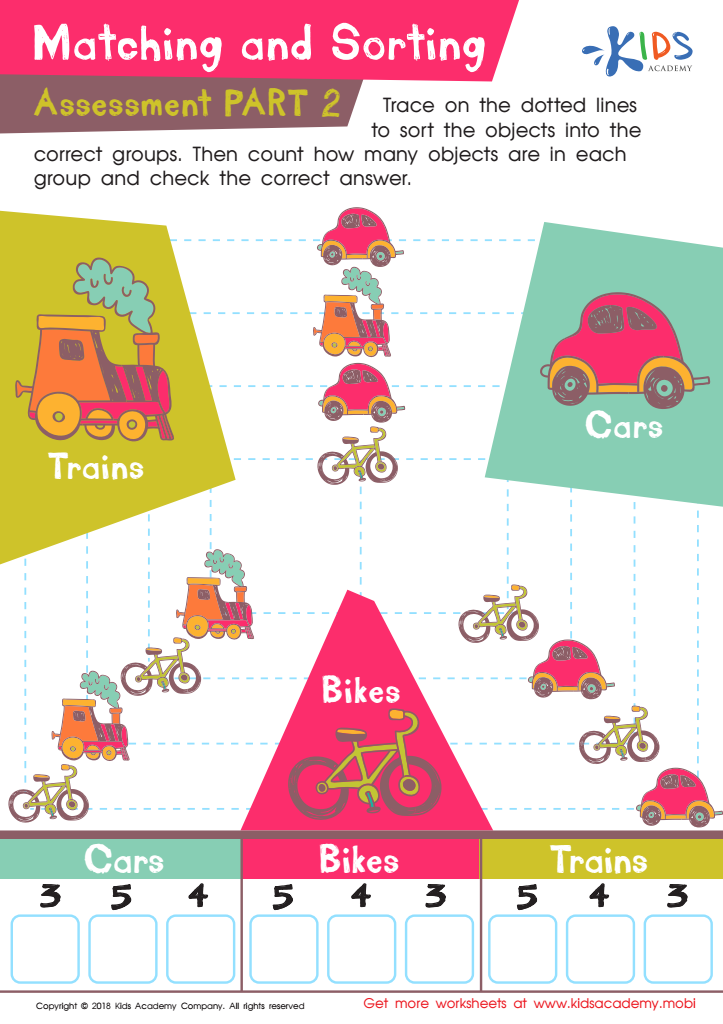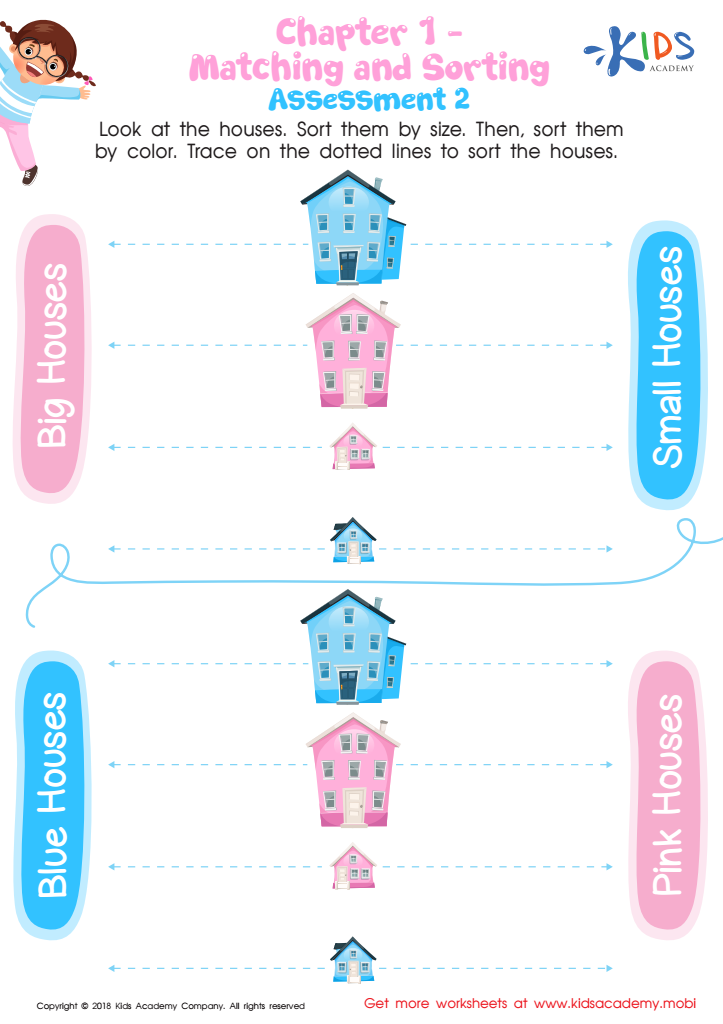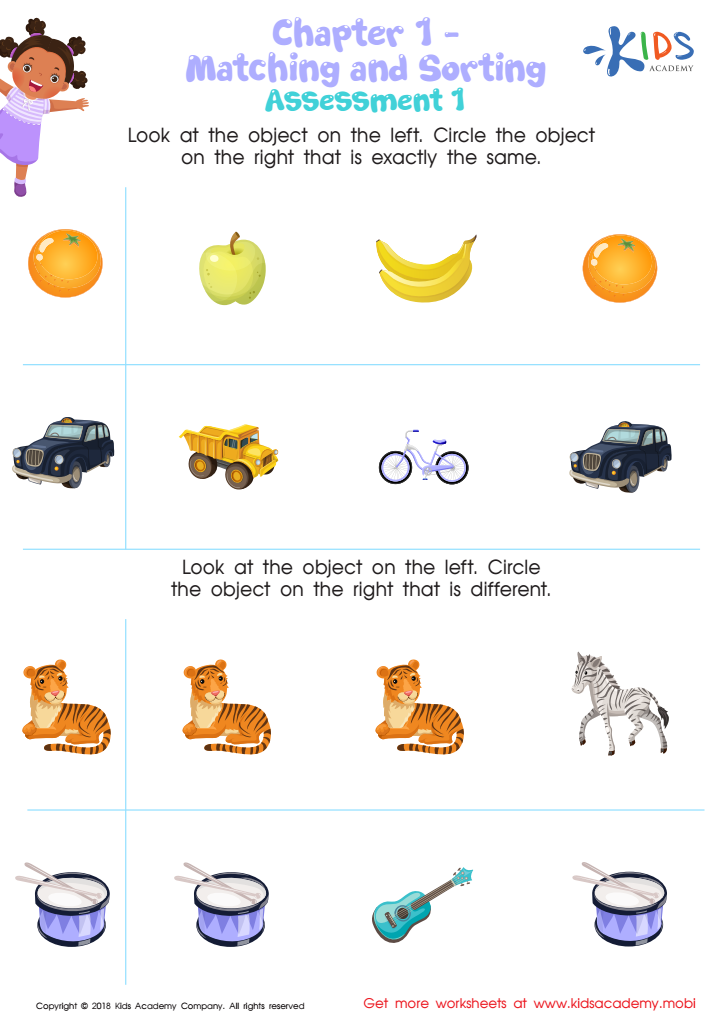Problem-Solving Skills Sorting Worksheets for Ages 5-6
4 filtered results
-
From - To
Unlock your child's problem-solving potential with our engaging Sorting Worksheets for ages 5-6! Designed to build critical thinking and analytical skills, these worksheets offer fun and interactive tasks that challenge young minds. Children will learn to categorize and sort a variety of objects, honing their observational skills and enhancing their mathematical understanding. Perfect for early learners, these printables foster a strong foundation for future success in math and beyond. Watch as your child delights in solving puzzles while developing essential cognitive abilities. Make learning enjoyable and effective with our expertly crafted Sorting Worksheets!


Make the Same Pattern Worksheet


Matching and Sorting for Kindergarten: Assessment 2 Worksheet


Matching and Sorting for Preschool: Assessment 2 Worksheet


Matching and Sorting for Preschool: Assessment 1 Worksheet
Problem-solving skills are crucial developmental milestones for children ages 5-6, and both parents and teachers should prioritize nurturing these abilities. At this age, children's brains are growing rapidly, and they naturally encounter numerous everyday challenges and puzzles. By learning problem-solving skills, children aren't just figuring out how to tackle these obstacles—they are also building critical thinking, creativity, and independence.
Engaging young children in problem-solving activities, such as sorting objects by shape, size, or color, fosters cognitive development. These activities enhance their ability to analyze situations, make decisions, and understand cause-and-effect relationships. They also build foundational math and logical reasoning skills that are crucial for future academic work.
Moreover, developing problem-solving skills contributes to emotional resilience. When children learn to approach a problem methodically and discover they can reach solutions, their self-confidence and perseverance grow. These are important traits that support both academic success and personal growth.
For teachers and parents, the goal is to create a supportive environment where children can safely explore, make mistakes, and try again. Providing varied, age-appropriate challenges ensures that early problem-solving experiences are positive and formative, setting the stage for lifelong skills that will serve children well in all aspects of life.
 Assign to My Students
Assign to My Students
















